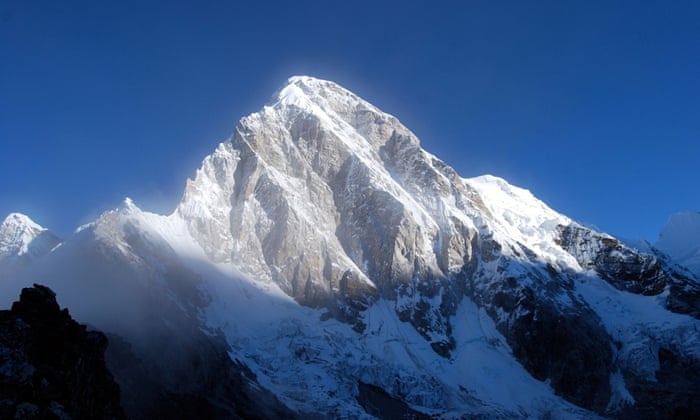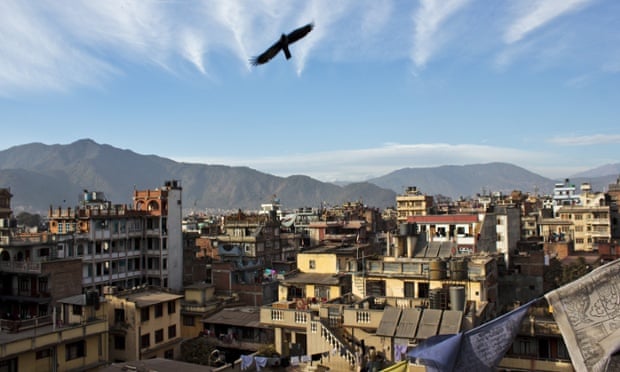Thinking Big, High and Through

"If the proposal becomes reality, bilateral trade, especially in agriculture products, will get a strong boost, along with tourism and people-to-people exchanges."
"The line will probably have to go through Everest, so workers may have to dig some very long tunnels."
Wang Mengshu, railway expert, Chinese Academy of Engineering
"The Chinese are giving it a hard try but the ties with India are very strong. There’s a natural geography and history to our relationship [with Nepal]. Yes, they can build a few roads but they can’t employ five million Nepalese. And how many Nepalis are migrating to China? Then there are affinities and culture too."
G. Parthasarathy, retired senior Indian diplomat, commentator
China aspires to control the Earth's great seas, both to exploit the natural resources on the sea floor, and navigation on the high seas, as a country whose primary entry to world domination is the cheap labour of its huge population, through manufacture and trade. A country whose impoverished people has been gradually lifted out of need and itself into the emerging status as a world power. A colossus whose neighbours tremble before its immense appetites.
Now, one of the icons of the world's geological features, in a range of impossibly high mountains whose summits bruise the sky, and which are venerated as abodes of the gods by local inhabitants' heritage of profound respect of its majesty and might, is set to be under-tunnelled by Chinese engineering and massive earth-moving equipment to transform Mount Everest from the challenge it represents to the mountaineering world, to a transitway linking two countries with immense populations.
Long tunnels indeed. Preparatory work is already underway, and at the request of Nepal's government, evidently. The Himalayan terrain would have an effect of constraining the speed at which such a train could travel, to a maximum of 80 kilometres per hour. Nepal appears complicit with whatever China plans, having benefited by road building and the investment of billions of pounds in hydro power and telecommunications, by free-spending China.

Kathmandu, Nepal. Photograph: Stoneography/Getty Images/Flickr RF
The link as planned is to provide a route for travellers from Beijing to Lumbini, a World Heritage Site, acknowledged as the birthplace of Buddha, which attracts tourists and pilgrims in numbers. Now the town is to be developed for greater tourist numbers through easier accessibility, with China's considerable assistance. China and Nepal have collaborated in investment by China in Lumbini and improved transportation links.
As for India's part in the planned Everest excavation and rail line -- surely an assault on nature's pristinely alien, fearsome and most fabulous geological features whose audacity and insult to tradition must be a cause of great anguish to the aboriginal people of Tibet and Nepal alike, the Sherpas and other tribal people who venerate the Himalayas and the stupendous mountain range that has inspired awe over the centuries. But this is progress....?
New Delhi appears to view all this with an relaxed attitude, a development whose time has come, with analysts convinced the initiative could bring significant trade benefits for India without any costs laid out on their part. A leading Indian policy analyst, Mohan Furuswamy, feels better rail links would succeed in releasing Tibet's potential for businessmen in Uttar Pradesh and Bihar. No need to consult with the gods or with nature herself.
All speed ahead...!
Not all sources are happy with the prospect of China's proposal. The project's "dangerous implications for regional security and the fragile ecosystem of the world's highest and largest plateau", is a concern expressed by the International Campaign for Tibet. "The Chinese government’s claim that rail expansion on the plateau simply benefits tourism and lifts Tibetans out of poverty does not hold up to scrutiny and cannot be taken at face value" commented the ICT president, Matteo Mecacci.

Labels: China, Environment, India, Mount Everest, Nature, Tibet, Trade

<< Home